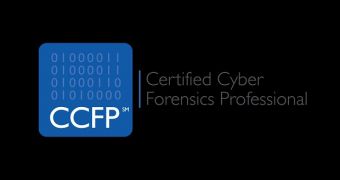(ISC)² has announced that Europeans interested in becoming cyber forensics experts can now sign up for the organization’s Certified Cyber Forensics Professional – European Union (CCFPSM-EU) certification.
The first exam will take place on April 30 at Pearson VUE test centers. The exam will also become available in German starting with June 15, 2014.
Initially, the CCFP certification was available only in the US and South Korea. However, the credential has been adopted for requirements in the United Kingdom and Europe after a series of exam workshops conducted by experts.
“A major challenge for the information security community today is that we are unable to fight cybercrime as one force,” said Lorenz Kuhlee, CCFP-EU, (ISC)² volunteer and lead investigator for the RISK Team at Verizon.
“The crime scene is broad and so to be effective, there is a need for collaboration across the cybercrime landscape in a way that bridges all aspects of security including technology, analytics, law enforcement and business. In Europe, the complexity is much higher due to the law-related disparities among countries,” Kuhlee added.
“The CCFP credential supports the unique requirements of individual countries, but equips professionals with a best practice-led, uniform and thorough approach to dealing with overall challenges.”
(ISC)² says its CCFP certification doesn’t focus on just a “narrow aspect” of cyber forensics. It covers six domains: legal and ethical principles, investigations, forensic science, digital forensics, application forensics, and hybrid and emerging technologies.
“Cyber forensics is more than crime scenes and just collecting and analysing hard drives and USB sticks. It can be applied to big data, security log review and other important security activities where careful analysis can yield important insights. Additionally, the discipline permeates information security, law enforcement and law in general,” explained Adrian Davis, (ISC)² managing director for EMEA.
“While its importance is growing globally, standardising cyber forensics practices across Europe is especially challenging given the numerous jurisdictions within the region. We have leveraged the expertise of subject matter experts to adapt the certification to specifically meet the needs of the European market,” Davis added.
“The CCFP encompasses the depth and breadth of expertise that every cyber forensics professional must possess – from forensics techniques and procedures through to standards of practice, as well as legal and ethical principles – that are commonly recognised, applicable and relevant across the region.”
Applicants must have at least 3 years of cumulative paid full-time experience in digital forensics or IT security in 3 of the aforementioned domains. If they don’t hold a four-year degree leading to a Baccalaureate, they must have at least 6 years of experience.

 14 DAY TRIAL //
14 DAY TRIAL //